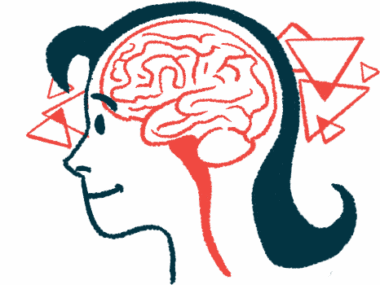Reminding Myself That I Don’t Have to Be ‘Wonder Woman’
Written by |

It is so important to get a good night’s sleep in order to function well the next day. A good night’s sleep energizes me and makes me feel like my body is being repaired while I sleep.
Unfortunately, this doesn’t happen for me every night. Still, I do everything in my power to try to sleep well. For example:
- I go to bed early.
- I pray.
- I turn on the TV and watch lighthearted shows like “Everybody Loves Raymond.”
- I avoid discussing deep or heavy issues at night.
- I don’t think about bills or things I have to do the next day.
All of these things work for me most nights, or at least at the beginning of the night. Some nights, I’ll wake up at 2 or 3 a.m. and toss and turn as I think about things I didn’t do earlier. A billion thoughts run through my head, such as: What am I going to cook tomorrow? Did I pronounce this word right while interpreting? What is the word in English for this word in Spanish? And so on, until I must force myself to stop.
Other days, I’ll hear my husband occasionally snoring, even while using his CPAP machine for treating his sleep apnea. Additionally, my English bulldog, Tito, also sometimes does his part to ensure I won’t be able to sleep. When he snores, I wonder if I have an English bulldog or an elephant living with us.
When I can’t sleep, the next day I struggle. It affects my quality of life like the domino effect. I feel fatigued, and indirectly, people around me suffer the consequences as I become more irritated and moodier.
I want to keep functioning like I’ve had at least eight hours of sleep, but my body doesn’t respond to the demands of my daily routine. I can’t completely feel my legs, and I struggle if I can’t fix the situation with a little nap. I’ll end up drinking a lot of coffee and eating sugary food such as candy.
When I can’t achieve my daily goals, I’m not only affected physically, but also emotionally. It is hard for me to accept that I can’t do the things I used to do. Before getting sick, I used to work two jobs or go to school and work. I thought I was “Wonder Woman 1984.”
Sadly, I don’t look like her or have superpowers like she does, other than static electricity. Nowadays, I wonder if all of this sacrifice during my “Wonder Woman 1984” era was worth it. Healthy or unhealthy, everyone needs a balanced life. Years ago, I “should have” been designating a time to work, a time to rest, a time for God, and a time for hobbies. Now, all of these “should haves” have become “must dos.”
In those days, I didn’t sleep as much. Now, I follow these rules:
- I choose activities that have priority over rest.
- I place my worries in God’s hands.
- I don’t wait to feel completely exhausted to stop what I am doing.
These rules work for me. If I don’t follow them, this is what happens:
- Completing a task takes longer, and I become exhausted and moody.
- I am unable to think clearly.
I do everything in my power to have a life in which I can function without thinking about my limitations. A good night’s sleep is an important part of functioning properly and avoiding fatigue. As a neuromyelitis optica (NMO) patient, I am more prone to becoming fatigued than people without NMO, according to research. Another study demonstrated that poor sleep in neuromyelitis optica spectrum disorders is common.
All of this means that it is common for an NMO patient like me to suffer from insomnia and fatigue. But this is not a good combination for having a good quality of life. This is why I develop strategies to ease the consequences of this exhausting combination.
I’m learning that it is OK not to be “Wonder Woman 1984” after all.
***
Note: Neuromyelitis News is strictly a news and information website about the disease. It does not provide medical advice, diagnosis, or treatment. This content is not intended to be a substitute for professional medical advice, diagnosis, or treatment. Always seek the advice of your physician or other qualified health provider with any questions you may have regarding a medical condition. Never disregard professional medical advice or delay in seeking it because of something you have read on this website. The opinions expressed in this column are not those of Neuromyelitis News or its parent company, Bionews, and are intended to spark discussion about issues pertaining to neuromyelitis optica spectrum disorder.







Leave a comment
Fill in the required fields to post. Your email address will not be published.